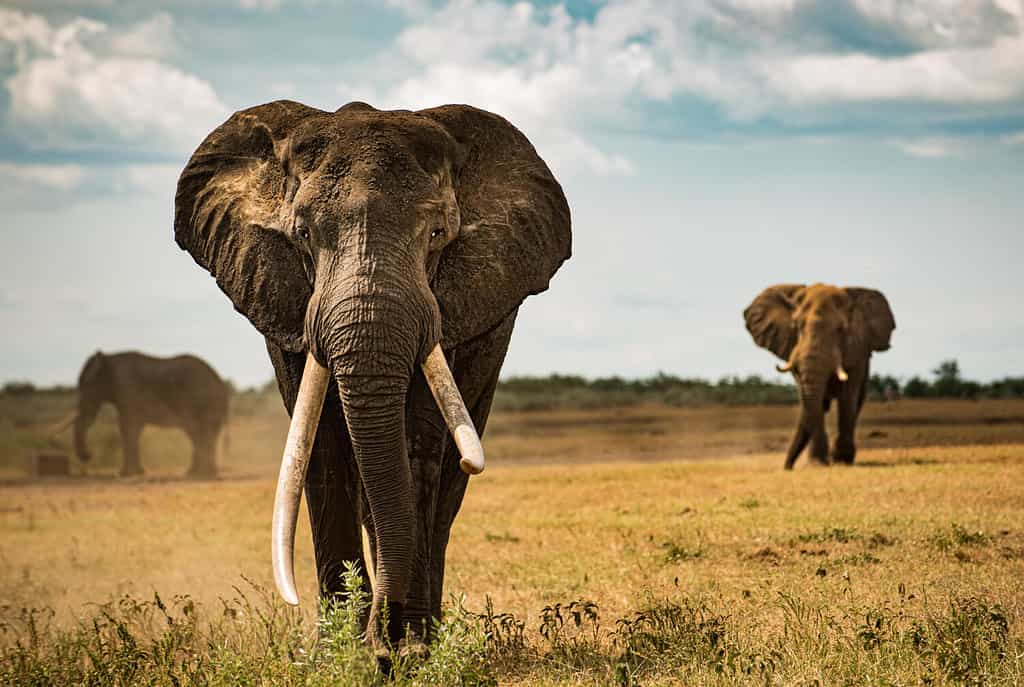See This Young Elephant Proudly "Mark Its Territory" in Front of a Group of Tourists
It would be safe to say that this young elephant is not exactly pleased by the presence of the tourists. He moves toward them and presents them with some great photographic opportunities. However, he then proceeds to both pee and poop right in front of their safari jeep. As the clip at the bottom of this page shows, elephants don’t really mind where they relieve themselves!
Where Do Elephants normally Live?
This footage was captured in Amboseli National Park in Kenya. African elephants are referred to as habitat generalists which means that they can survive in many areas as long as they have enough food and water. There are several sub-species living in Africa and they occupy different geographical areas. For example, savanna elephants occupy mainly lowland forests, floodplains, and different types of woodland and savanna. Forest elephants, on the other hand, occupy mainly moist, semi deciduous rainforest.
Are Elephants Territorial?

©Johann Mader/Shutterstock.com
There is actually no evidence of elephants being territorial. However, they can become very upset about things that they find unacceptable in their environments. If they think that an animal or an object presents a threat, they can behave aggressively towards it. Elephants use threat behaviors where they turn towards the perceived threat and spread their ears at the same time as standing as tall as possible. They also nod and shake their head and swish their trunk back-and-forth.
How Long Do Elephants Live?
Life expectancy for elephants is very variable and depends on their population and where they are living. In the wild, African elephant life expectancy is typically between 30 to 35 years but it can be longer. Females live longer than males. Adult elephants do not have many predators. However, lion prides can work together to bring down a young elephant. Some elephants die because they have accidentally slipped or fallen. Bulls can get killed during their reproductive musth periods. Some elephants also die from draught or from lack of food.
Sadly, humans are responsible for the death of many elephants. This is either because humans see them as a threat to their crops or from poaching. Elephants can only live for as long as their teeth allow them to. As each tooth is worn down, it moves to the front of the mouth and eventually falls out. Once the final tooth has been lost, the elephant is no longer able to chew its food. It may be able to survive on the softer vegetation found in swamps for some time.









